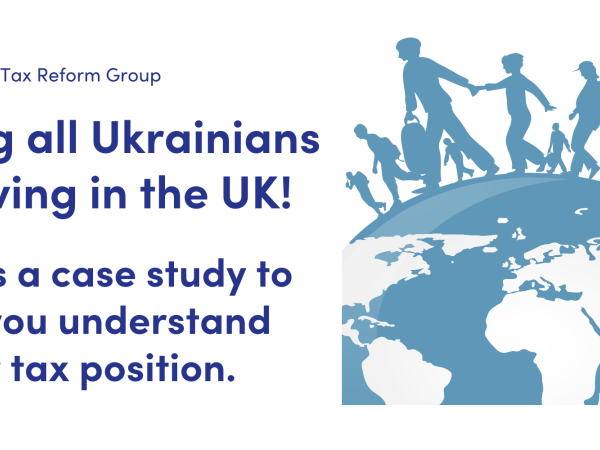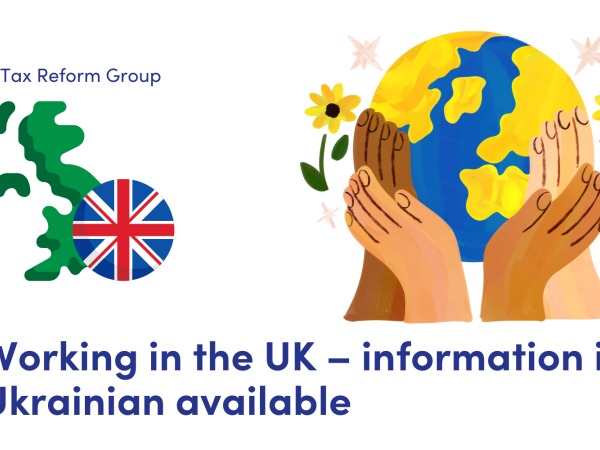Help with tax for non-English speakers
For a long time, LITRG have been concerned about the problems that migrant workers to the UK might face in understanding and navigating the UK tax system. To help address this we have created a page of guidance, bringing together as much help as possible into one place. We have also created a set of videos, translated into different languages, to help migrant workers understand where to get tax help.

How to contact HMRC by telephone
HMRC have a dedicated Welsh language helpline.
For other languages, you can get a friend or family member to interpret phone calls to HMRC for you. The friend or family member must be over 16 and will need to be in the same room as you when you call HMRC.
HMRC may also be able to organise an interpreter for you.
The process is as follows:
- Contact the HMRC helpline that you require – the main one is the income tax general enquiry line
- Navigate the speech recognition system (for more detail on how to do this see below)
- Inform the HMRC adviser that you don’t speak English (and do not have someone over 16 to support you to act as an interpreter)
- Tell the HMRC adviser what language you need an interpreter for
- The rest is handled internally by HMRC.
As mentioned above, HMRC have a speech recognition system in place. This system analyses what you say to direct you to the appropriate place. If you need a translator, you should note the following:
- There will be several broadcast messages at the very beginning of the call explaining a bit about HMRC and giving some information about topical issues. These can take a few minutes during which time you should just remain quiet.
- The system should start by saying ‘To direct your call to the right place, I’d like to know why you are calling today.’
- The system should then say ‘Tell me, in a few words, what is the reason for your call.’
- You should say ‘I need a translator’ – this phrase should be recognised by the system.
- The system will check that you have said ‘you’d like a translator’ and you should say ‘yes’.
- It should then ask, ‘are you calling about your own tax’ and you should say ‘yes’.
- There will then be a broadcast message about trying to get a friend or family member to help you first, but, if you hold on, you should eventually get transferred to the queue for an adviser.
Occasionally the helplines are so busy that you are not transferred to the queue but asked to ring back.
You may find it more convenient to contact HMRC online, using an interpreter or translation tool to help you – more on this here.
If you do not manage to sort the problem out with HMRC, and cannot afford professional advice, then you can contact TaxAid, an independent tax charity.
You can get someone who speaks English to ring the TaxAid helpline for you. You should be in the same room as them when they ring. If you cannot phone their helpline, then you can contact them via an online form. Again, you could use an interpreter or a translation tool to help you complete the online form.
TaxAid are not able to provide a translator but they can help you to reach HMRC. If you need their support to resolve your issue with HMRC, TaxAid may also be able to offer you an appointment with one of their caseworkers, and you can bring your own translator to that.
If you are looking for information or guidance in another language, please see the heading More information below.
Videos
With the help of some volunteer translators, LITRG have posted a short set of videos setting out ‘Where to get help with tax if you do not speak English’ in some different languages:
- English
-
- Afrikaans
-
- Bulgarian
-
- French
-
- German
-
- Hindi
-
- Hungarian
-
- Italian
-
- Mandarin
-
- Polish
-
- Portuguese
-
- Romanian
-
- Russian
-
- Spanish
-
- Turkish
-
- Ukrainian
-
How you can help
We would encourage those reading this page, who have connections to migrant communities, to share and link to this page and the videos to ensure they can reach migrant workers who might need them.
We are very grateful to our volunteer translators. We are aware that there will be other languages where there is a ‘user need’, and we plan to add more languages as soon as we can. We would love to hear from people who speak additional foreign languages who may be able to help increase the suite of videos. If you would be willing to give up a little of your time for this good cause, please get in touch.
Guidance for Ukrainians
HMRC do not usually provide information in other languages (see the heading More information below), however some very basic information about paying tax in the UK in Ukrainian is included on GOV.UK, for example in the general collection of information on GOV.UK for Ukrainian nationals (see under ‘Work and tax’). It is available in the Ukrainian language via the language toggle at the top.
We have written an article in English and Ukrainian – introducing the UK system – you can find a link to it below under the heading You might also like.
There is guidance on GOV.UK looking at the double tax issues faced by some Ukrainians in the UK if they are working for a Ukrainian employer. We provide more detail about double taxation issues in this context and others, in our own article – linked to below in the ‘You might also like’ section.
More information
Moving to another country to work can be daunting, especially if you don’t speak the language well. Add a tax problem into the mix, along with a lack of experience of UK systems and perhaps cultural differences which mean that you don’t feel comfortable approaching the authorities – and it is easy to understand why we sometimes hear from migrant workers with tax issues that have grown disproportionately!
Despite this HMRC do not, as standard, provide any information to migrant workers in their own language. They used to provide a useful introductory guide to the UK tax system ‘Coming to work in the UK? We’ll show you the way to pay your taxes.’ in Bulgarian, Czech, English, Hungarian, Latvian, Lithuanian, Polish, Portuguese, Romanian, Russian and Slovakian, but this was removed. Our understanding is that it was removed as government thought that it did not help people to integrate. (It is still available to view in the Government archives.)
It is worth saying that some other government bodies provide a range of information for those working in the UK, available in different languages and formats to meet the diverse needs of workers. See for instance Workers’ Rights leaflets from the Gangmaster’s & Labour Abuse Authority and Information from the Health and Safety Executive.



